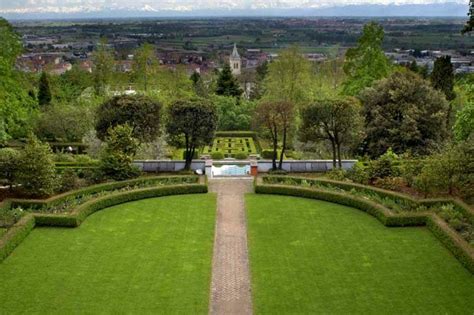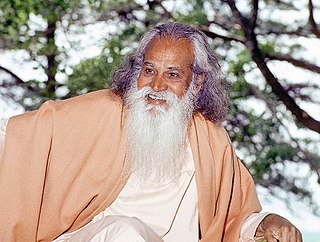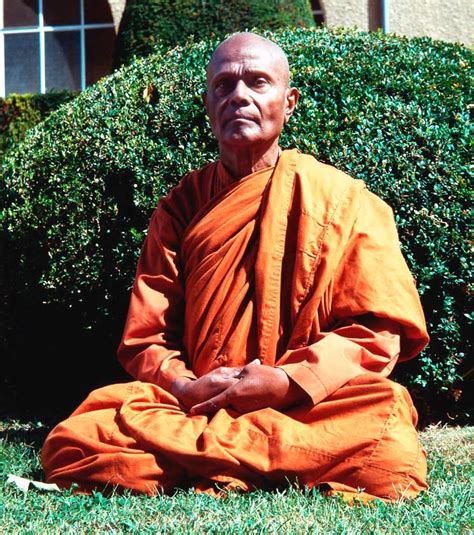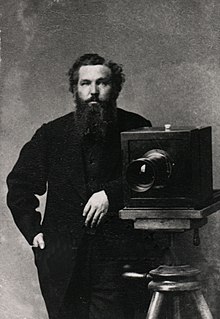Top 651 Hinduism And Buddhism Quotes & Sayings - Page 11
Explore popular Hinduism And Buddhism quotes.
Last updated on November 10, 2024.
First of all, Buddhism is neither pessimistic nor optimistic. If anything at all, it is realistic, for it takes a realistic view of life and the world. It looks at things objectively (yath?bh?tam). It does not falsely lull you into living in a fool's paradise, nor does it frighten and agonize you with all kinds of imaginary fears and sins. It tells you exactly and objectively what you are and what the world around you is, and shows you the way to perfect freedom, peace, tranquility and happiness.
A handful of men working within the Zen sect of Buddhism created gardens in fifteenth-century Japan which were, and still are, far more than merely an aesthetic expression. And what is left of the earlier Mogul gardens in India suggests that their makers were acquainted with what lay behind the flowering of the Sufi movement in High Asia and so sought to add further dimensions to their garden scenes.
When we seek happiness through accumulation, either outside of ourselves-from other people, relationships, or material goods-or from our own self-development, we are missing the essential point. In either case we are trying to find completion. But according to Buddhism, such a strategy is doomed. Completion comes not from adding another piece to ourselves but from surrendering our ideas of perfection.
The five points of yama, together with the five points of niyama, remind us of the Ten Commandments of the Christtian and Jewish faiths, as well as of the ten virtues of Buddhism. In fact, there is no religion without these moral or ethical codes. All spiritual life should be based on these things. They are the foundation stones without which we can never build anything lasting. (127)
[Buddhism and Christianity] are in one sense parallel and equal; as a mound and a hollow, as a valley and a hill. There is a sense in which that sublime despair is the only alternative to that divine audacity. It is even true that the truly spiritual and intellectual man sees it as sort of dilemma; a very hard and terrible choice. There is little else on earth that can compare with these for completeness. And he who does not climb the mountain of Christ does indeed fall into the abyss of Buddha.
The incipient magician will confess his faith to a universal religion. He will find out that every religion has good points as well as bad ones. He will therefore keep the best of it for himself and ignore the weak points, which does not necessarily mean that he must profess a religion, but he shall express awe to each for of worship, for each religion has its proper principle of God, whether the point in question be Christianity, Buddhism, Islam or any other kind of religion.
I think a lot of people trying to follow Buddhism these days are getting confused about sex and they don't understand what's going on. They've been exposed to a contemporary Christian idea that sex itself is evil and bad, which I'm not so sure was Jesus' idea. For me, the Buddhist approach isn't that sex itself is evil or bad but that sex is neutral. It's the way you do it that can problematic.
Often, everywhere we look, we seem to find obstacles and facades and smokescreens, so it was really nice to find things in the world that actually spoke to me. And I felt like Eastern thought really spoke to me. Because it isn't trying to cover up the pain in life; it's trying to deal with it and overcome it in an intelligent way. I think the reason I love Eastern thought so much, and mysticism in general - but especially Buddhism - is because it seems to me an attempt to look life squarely in the face, as it is.
Christ remains the most influential figure in history. Any list of world-transforming individuals would no doubt include Moses, Buddha, and Muhammad. Moses, Buddha, and Muhammad, however occupy totally different places in Judaism, Buddhism, and Islam than Christ occupies in Christianity. Moses, Buddha, and Muhammad never professed to perform miracles; indeed they never claimed to be anything more than men. They viewed themselves simply as God's messengers. Christ is the only person in history who has defined a whole religion around his person.
The most important things in life can't be seen with the eyes. Ideas can't be seen. Love can't be seen. Honor can't be seen. This isn't a new concept. Judaism and Christianity and Islam and Buddhism and Taoism have all taught for thousands of years that the highest forms of reality are invisible. God is invisible, and he created the universe. Our souls are invisible, and they give life to our bodies. Angels are invisible, and they're the most powerful of God's creatures.
Here's an example: someone says, "Master, please hand me the knife," and he hands them the knife, blade first. "Please give me the other end," he says. And the master replies, "What would you do with the other end?" This is answering an everyday matter in terms of the metaphysical. When the question is, "Master, what is the fundamental principle of Buddhism?" Then he replies, "There is enough breeze in this fan to keep me cool." That is answering the metaphysical in terms of the everyday, and that is, more or less, the principle zen works on. The mundane and the sacred are one and the same.
On the philosophical level, both Buddhism and modern science share a deep suspicion of any notion of absolutes, whether conceptualize as a transcendent being, as an eternal, unchanging principle such as soul, or as a fundamental substratum of reality. ... In the Buddhist investigation of reality, at least in principle, empirical evidence should triumph over scriptural authority, no matter how deeply venerated a scripture may be.
Since religion intrinsically rejects empirical methods, there should never be any attempt to reconcile scientific theories with religion. An infinitely old universe, always evolving, may not be compatible with the Book of Genesis. However, religions such as Buddhism get along without having any explicit creation mythology and are in no way contradicted by a universe without a beginning or end. Creatio ex nihilo, even as religious doctrine, only dates to around AD 200. The key is not to confuse myth and empirical results, or religion and science.
Americans are interested because they are open-minded. They have an education system that teaches them to find out for themselves why things are the way they are. Open-minded people tend to be interested in Buddhism because Buddha urged people to investigate things - he didn't just command them to believe.
The more truthful I am with myself and others, the more my conscience is clear and tranquil. Thus, I can more thoroughly and unequivocally inhabit the present moment and accept everything that happens without fear, knowing that what goes around comes around (the law of karma). Ethical morality and self-discipline represent the good ground, or stable basis. Mindful awareness is the skillful and efficacious grow-path, or way. Wisdom and compassion constitute the fruit, or result. This is the essence of Buddhism [...]
Many people entertain the idea that Christianity,like almost any other religion,is basically a system of beliefs-you know, a set of doctrines or a code of behavior, a philosophy, an ideology. But that's a myth. Christianity is not at all like Buddhism or Islam or Confucianism. The founders of those religions said (in effect), 'Here is what I teach. Believe my teachings. Follow my philosophy.' Jesus said, 'Follow me'(Matthew 9:9). Leaders of the world's religions said, 'What do you think about what I teach?' Jesus said, 'Who do you say I am?'(Luke 9:20)
The saying "no self, no problem" probably comes from Zen. In their cultures, where Buddhism is kind of taken for granted, as well as karma, causality, former and future life, and the possibility for becoming enlightened, then it's safe to skirt the danger of nihilism, which would be, I don't exist because Buddha said I have no self, and therefore I have no problem because I don't exist. That would be a bad misunderstanding. But in those cultures, it would not be as easy to have that understanding as it would be here in the west, where we really are nihilistic.
Hinduism... gave itself no name, because it set itself no sectarian limits; it claimed no universal adhesion, asserted no sole infallible dogma, set up no single narrow path or gate of salvation; it was less a creed or cult than a continuously enlarging tradition of the Godward endeavour of the human spirit. An immense many-sided many-staged provision for a spiritual self-building and self-finding, it had some right to speak of itself by the only name it knew, the eternal religion, Sanatana Dharma.
Man has to create marriage because man is afraid of the unknown. On all levels of life and existence, man has created substitutes: for love there is marriage; for real religion there are sects - they are like marriages. Hinduism, Mohammedanism, Christianity, Jainism - they are not real religion. Real religion has no name; it is like love. But because love is dangerous and you are so afraid of the future, you would like to have some security. You believe more in insurance companies than in life. That's why you have created marriage.
I think East Asian countries, I think they're very fortunate to have Buddhism survive as a strong influence because right from the time when Buddha himself, 2,500 years ago, made the point about the importance of education, and the word "Buddha" also means enlighten[ed] or educated. So all the Buddhist countries, not only Japan and Korea and China and Hong Kong and Thailand but also even Burma and Sri Lanka, had a higher level of education.
In Buddhism, both learning and practice are extremely important, and they must go hand in hand. Without knowledge, just to rely on faith, faith, and more faith is good but not sufficient. So the intellectual part must definitely be present. At the same time, strictly intellectual development without faith and practice, is also of no use. It is necessary to combine knowledge born from study with sincere practice in our daily lives. These two must go together.
Buddhism holds that everything is in constant flux. Thus the question is whether we are to accept change passively and be swept away by it or whether we are to take the lead and create positive changes on our own initiative. While conservatism and self-protection might be likened to winter, night, and death, the spirit of pioneering and attempting to realize ideals evokes images of spring, morning, and birth.
In Buddhism, there are three gems: Buddha, the awakened one; Dharma,
the way of understanding and loving; and Sangha, the community that
lives in harmony and awareness. The three are interrelated, and at
times it is hard to distinguish one from another. In everyone there
is the capacity to wake up, to understand, and to love. So in
ourselves we find Buddha, and we also find Dharma and Sangha.
Yet it would be unfair to the generality of our kind to ascribe to their intellectual and moral weakness the gradual divergence of Buddhism and Christianity from their primitive patterns. For it should not be forgotten that by their glorification of poverty and celibacy both these religions struck straight at the root not merely of civil society but of human existence. The blow was parried by the wisdom or the folly of the vast majority of mankind, who refused to purchase a chance of saving their souls with the certainty of extinguishing the species.
I came to the conclusion long ago that all religions were true and that also that all had some error in them, and while I hold by my own religion, I should hold other religions as dear as Hinduism. So we can only pray, if we were Hindus, not that a Christian should become a Hindu; but our innermost prayer should be that a Hindu should become a better Hindu, a Muslim a better Muslim, and a Christian a better Christian.
In Buddhism, we speak of touching Nirvana with our own body, In Christianity, you can also touch the Kingdom of God with your body, right here and now. it is much safer than placing our hope in the future. If we cling to the idea of hope in the future, we might not notice the peace and joy that are available in the present moment. The best way to take care of the future is to take care of the present moment.
Zen purposes to discipline the mind itself, to make it its own master, through an insight into its proper nature. This getting into the real nature of one's own mind or soul is the fundamental object of Zen Buddhism. Zen, therefore, is more than meditation and Dhyana in its ordinary sense. The discipline of Zen consists in opening the mental eye in order to look into the very reason of existence.
Kerouac's books portray a hero and narrator free and easy, confident, sure of his rebellion against the American system. In reality, Jack was torn between Catholicism, Buddhism, and his own demon-driven pursuit of kicks, between spirit and flesh, between mom's house and the Beat coffeehouse, patriotism and subversion, men and women, society and solitude, carousing and meditation, sacred and profane, secular and divine. It's a miracle he survived as long as he did.
It really was something, to see Ram Bahadur Bomjon, apparently living without food or water. Before I went on that trip I'd asked advice on it from a very wise person who I love and revere - basically trying to see if I was somehow disrespecting Buddhism by trying to write about it, and also looking for some grounding on what stance to take ... and my friend said, "Well, why don't you just go and see?" And I hear that in my head all the time now: "Why don't you go and see?"
A friend of mine told me a bunch of stuff on Buddhism and about Avicii being the lowest level of Buddhist hell, and it just sort of got stuck in my head. Later on when I went to setup a MySpace, I tried a bunch of names and they were all taken so I just kind of ended up with Avicii and then I got really attached to it.
A person without an Apple watch is perfectly content with his present watch but when he sees his friends buying the watch, he will hanker for an Apple watch. The endless cycle of wanting, getting, and wanting again is part of the plot of Capitalism. It is the way Capitalism creates jobs. The only antidote is Buddhism that holds that people might be happier by renouncing desire rather than by striving to satisfy desire. But then how can the economy create enough jobs in a Buddhist society of "less is more."
Buddha was speaking about reality. Reality may be one, in its deepest essence, but Buddha also stated that all propositions about reality are only contingent. Reality is devoid of any intrinsic identity that can be captured by any one single proposition - that is what Buddha meant by "voidness." Therefore, Buddhism strongly discourages blind faith and fanaticism.
When people ask the Dalai Lama, "Is Buddhism a religion?" he answers, "Yes, it is." Then they ask, "What kind of religion is it?" He responds, "My religion is kindness." You might think, "Everyone's is." Everyone's is. That's true. It's not complicated to describe the goal of a spiritual life. It's easier than you think to explain it. It's more difficult than you can imagine to do it.
Buddhism advises you not to implant feelings that you don’t really have or avoid feelings that you do have. If you are miserable you are miserable; that is the reality, that is what is happening, so confront that. Look it square in the eye without flinching. When you are having a bad time, examine that experience, observe it mindfully, study the phenomenon and learn its mechanics. The way out of a trap is to study the trap itself, learn how it is built. You do this by taking the thing apart piece by piece. The trap can’t trap you if it has been taken to pieces. The result is freedom.
A very enjoyable meditation on the curious thing called 'Zen' -not the Japanese religious tradition but rather the Western clich of Zen that is embraced in advertising, self-help books, and much more. . . . Yamada, who is both a scholar of Buddhism and a student of archery, offers refreshing insight into Western stereotypes of Japan and Japanese culture, and how these are received in Japan.
I think that we all at some point are in search of something - a higher power, whatever you want to call it, the meaning of life. I know I was, especially at even my son's age in my 20s, and dabbling in Eastern philosophies and yoga and Buddhism and Christianity and Islam. I kind of touched them all, you know, just trying to figure out the meaning of life or if nothing else, figure myself out.
Western progress (from one damned thing to another) seems to be essentially the MO of nowhere fast. But, on the other hand, the don't-set-foot-outside-your-own-village/cave ideal or injunction that you find in Buddhism and even in the Daoism of which I'm fonder, seems . . . defeatist. And more than that, it is in contradiction to what nature actually does. Somewhere, somehow, I feel as if these two opposing principles have to be reconciled.
Here, the certain temple rule, this seems to me to have a certain responsibility to look after the well-being of society and look after Buddhism and culture. I consider these part of the practice of spirituality. There is no competition between spiritual practice and party politics. That is outdated. We already, since 2001, have elected political position. My position is semi-retired. I am looking forward to complete retirement.
Traditionally, women didn't have much a role in Buddhism. The books were all written by monks, for other monks. So the general view of the feminine was rather misogynistic, with women playing the role of the forbidden other, waiting to pounce on innocent little monks! In that society, it was hard for women to become educated and get the deeper teachings and really become accomplished.
In Buddhism, we say reincarnation is the conscious taking of rebirth by a Bodhisattva, or by a high being, whereas rebirth, is what most people do. Rebirth is an involuntary process where they seek traction by finding a new body after their subtle mind loses the old one. There are two things commonly said about this. One- there is no evidence for it and two- if there is evidence, what's the mechanism which carries the consciousness from one life to another.
I began researching and writing what I intended as a book-length essay entitled Fascination and Liberation, exploring the question of whether there is a conflict between creativity and the Eastern form of enlightenment. I don't know if I'll ever finish that essay, because I had an experience, after I'd written two or three chapters, in which it seemed to me that my psychic antibodies decisively rejected Buddhism. Interestingly, the rejection felt as if it happened in Zen terms.
The way of presentation is different according to each religion. In theistic religions like Buddhism, Buddhist values are incorporated. In nontheistic religions, like some types of ancient Indian thought, the law of karma applies. If you do something good, you get a good result. Now, what we need is a way to educate nonbelievers. These nonbelievers may be critical of all religions, but they should be decent at heart.
Buddhism is the most active one! The whole time, we're dealing with the mind and how to tame it, and how to transcend our ordinary conventional mind. This takes an enormous amount of determination and perseverance. It also requires an attitude of being relaxed and spacious, rather than tense and stressed. It's certainly not a matter of lying back and expecting it all to happen. If we don't make it happen, it won't!
There is a true feminist movement in Buddhism that relates to the goddess T?r?. Following her cultivation of bodhicitta, the bodhisattva's motivation, she looked upon the situation of those striving towards full awakening and she felt that there were too few people who attained Buddhahood as women. So she vowed, 'I have developed bodhicitta as a woman. For all my lifetimes along the path I vow to be born as a woman, and in my final lifetime when I attain Buddhahood, then, too, I will be a woman.'
I think there's some pretty amazing language in the Bible. The thing that's always been interesting to me about religion is that compared to the more modern spirituality, the West Coast pseudo-Buddhist thing that people go for these days, actual Buddhism and Islam have been looking at these philosophical questions, at really hard questions, for a long time. There's a lot of stuff that philosophy doesn't talk about, and in the secular world, a lot of times, people don't talk about these ideas, and that was always really interesting for me.
We may have created this projection of what God should be, as this judge or test, but the fact is, the only way we know about God is by knowing ourselves in some way. So God must be in ourselves-you can't deny that. If you say that God is somewhere else, which is what a lot of religions say, I just can't deal with it. I guess it's the difference between Buddhism, Christianity, and Judaism, or something.






































